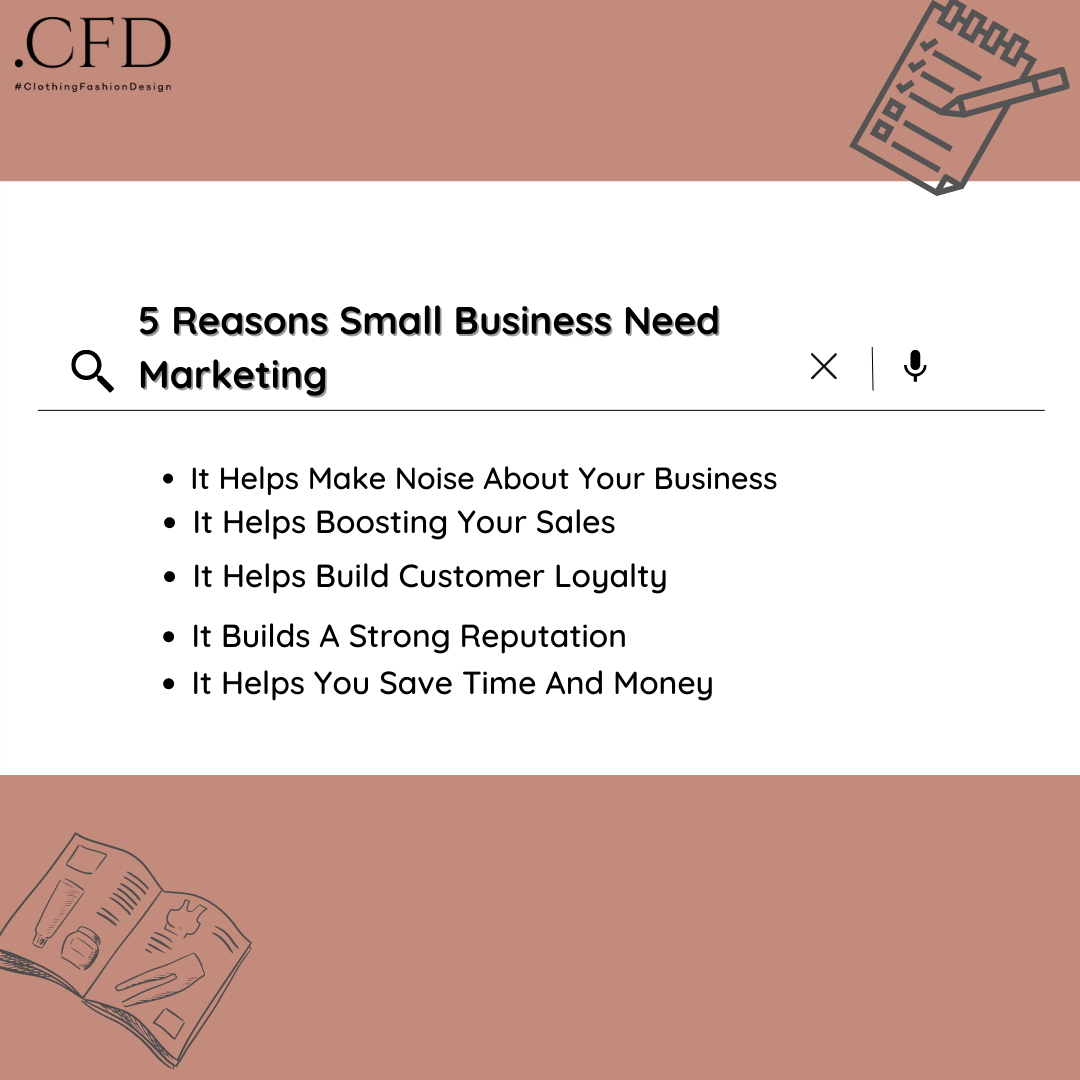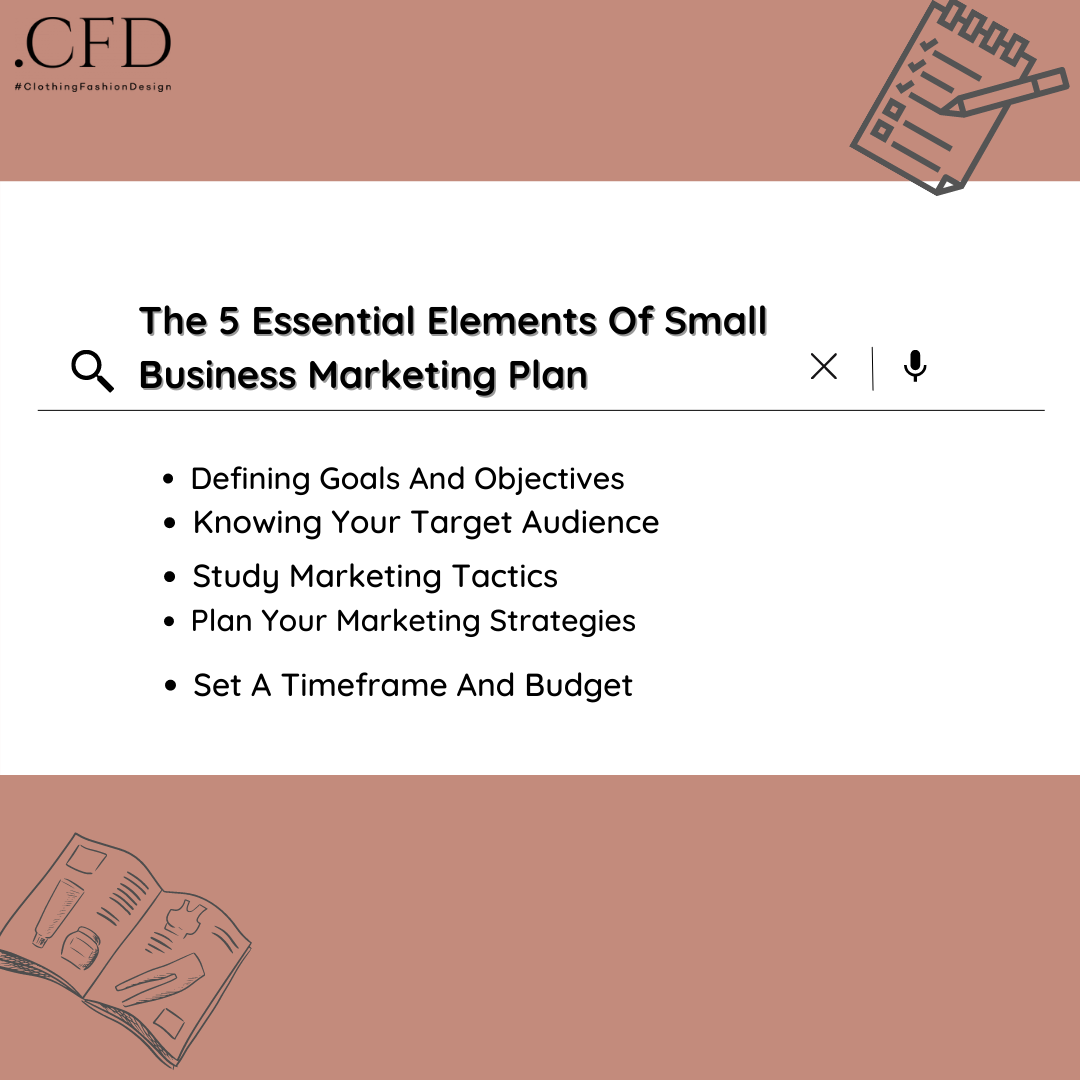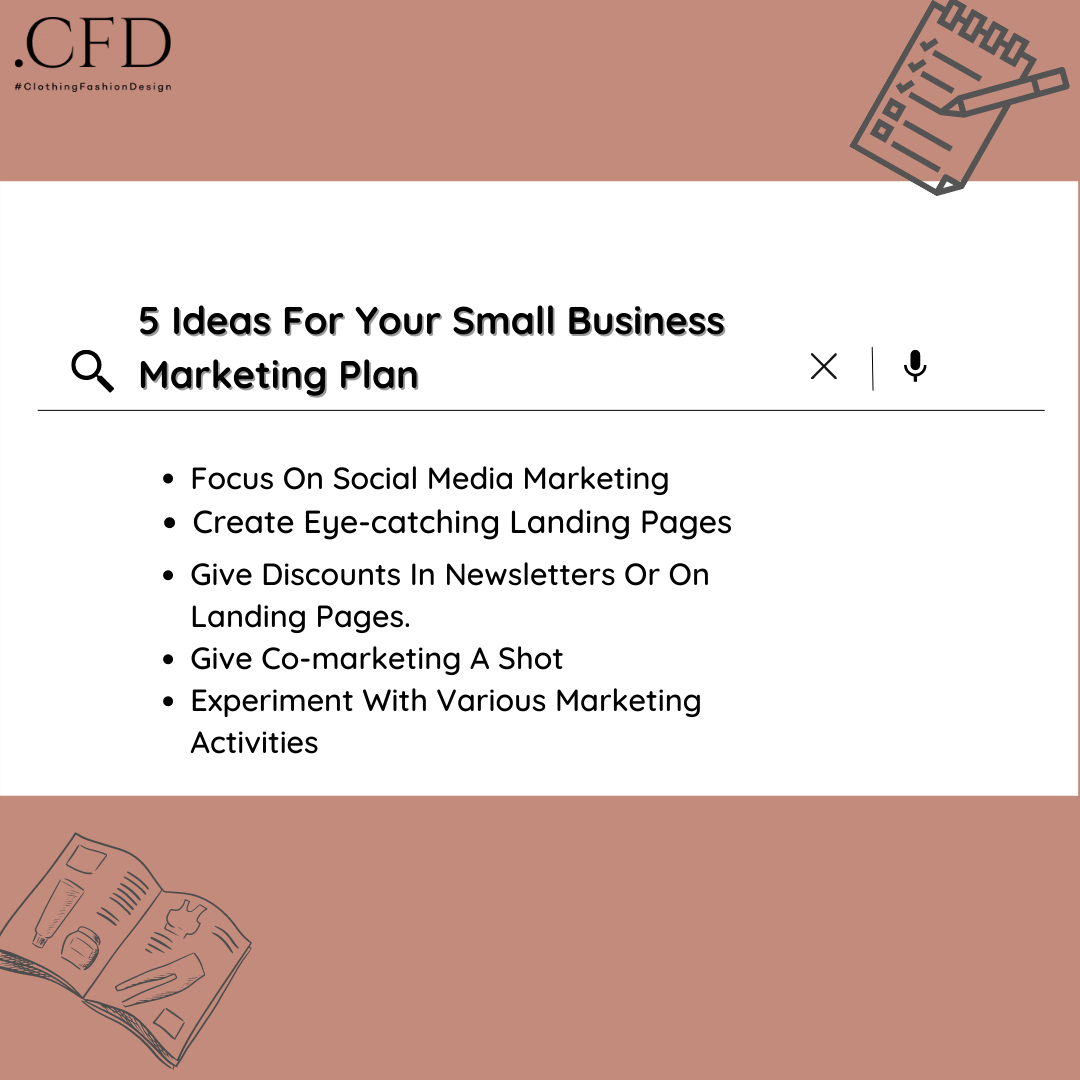A small business marketing plan is crucial for growth and sustenance in the long run. Strategic marketing helps attract new customers that keep a small business thriving and growing. A small business marketing plan allows a business to achieve its sales goals and branding motives. With proper planning, marketing activities, and tactics, a small business can create massive noise for itself.
Therefore, when you sit down at the desk to write down a marketing plan for your small business, you need to consider a couple of things: what sort of marketing will work the best for your small business? What is it like to work in the marketplace? How should you start? And where should you start from?
It seems like a lot, but you can nail your small business marketing like a pro with proper planning.
To begin with, let’s understand why a small business needs to market itself?
Why A Small Business Needs To Market Itself?
With a small business marketing plan, you will be able to break ground and build unique products and services that will satisfy the needs of your consumers. More importantly, you will be able to reach your audience and target them. Done right, your small business marketing plan will augment your small business sales and boost growth.
5 Reasons Small Business Need Marketing

1. It Helps Make Noise About Your Business
With strong and effective marketing, you can instill your brand in your customer’s minds. Marketing your small business helps you build your brand and make your audience aware of your products and services.
For instance, if people plan to buy a new android phone, they will likely consider buying the well-known one, having good reviews from customers, and the one with strong marketing.
2. It Helps Boosting Your Sales
Once you catch your customer’s attention and make a place in their minds, you increase your chances of selling your products and services to them. And if your products and services satisfy their need, your brand will be the name on their lips, and they will start recommending your brand to more and more people, which will result in more sales. Hence, marketing your small business increases sales.
3. It Helps Build Customer Loyalty
Once you build a strong foundation for your small business and develop a reputation for it, continuously marketing it will allow you to retain more and more customers, resulting in a strong following of loyal customers who trust your brand’s products and services. Another critical factor is that you won’t lose your ground to new entries in the market.
4. It Builds A Strong Reputation
The success you achieve with your small business heavily relies on how strong and trustworthy your reputation is. With a small business marketing plan in place, you will be able to build a name for your business that helps it get recognized by your potential customers and grows your reputation along with its sales.
Therefore, the reputation of your small business will be built on effective and smart marketing messages along with the quality of products and services you offer to your audience. Effective marketing is a vital component of building a strong brand image for your small business.
5. It Helps You Save Time And Money
By having a small business marketing plan in place, you can market your products and services efficiently and in a cost-effective manner. This will enable you to increase ROI on marketing. Marketing your small business allows your target audience to discover you faster and engage with you while also giving you time to focus on other aspects of growing your small business.
Now that we know why a small business needs to market itself, let’s look at the 5 essential elements of the small business marketing plan.
The 5 Essential Elements Of Small Business Marketing Plan

The first important step while starting your own small business is to have a business plan; the second is to have a small business marketing plan. While your business plan tells you the destination, your small business marketing plan gives you the direction to reach that destination. Every business needs to align its business plan with its marketing plan to attain success.
Marketing strategies vary for every business based on their respective goals, but they all have some aspects in common that help them attract new customers and achieve their business goals. How a business market itself depends upon them, but they should follow the following 5 elements to succeed with their small business marketing plan.
1. Defining Goals And Objectives
As mentioned earlier, your small business marketing plan acts as a guide that helps your business reach its goals. Therefore, before preparing a small business marketing plan, you need to clarify your business goals and objectives. By setting your goals, you can focus your time, energy, resources, and budgets on your small business marketing activities and campaigns, which will lead you towards achieving your goals.
You need to be practical and realistic with your small business marketing goals. The goals you list down in your small business marketing plan must be measurable and align with your business plan. Some common marketing goals include attracting new customers, increasing sales, or creating brand awareness. With a marketing plan in place, you will have a strategic direction that will help you reach closer to your marketing goals. While setting your goals, keep in mind the type of products and services your small business offers and how you would like to market them in front of your target buyers.
2. Knowing Your Target Audience
You need to describe your potential buyers who will be buying your products to know how to target them. For example, if your small business is a fashion boutique, you need to know what kind of people will buy your clothes and their media viewing habits.
For instance, if you own a luxury fashion boutique, chances are your audience is high-end fashion intrigued people who buy branded stuff. These people might also read fashion magazines and follow various fashion-related news on different social media platforms. Therefore, your marketing can include getting featured in a high-end fashion magazine, collaborating with luxury fashion influencers, etc.
Having a name that piques the interest of your target audience is one of the most efficient yet overlooked marketing strategies. Taking time to develop a stylish, innovative, and smart name and then building a strong brand around it can do wonders for your brand. If you own a fashion or clothing business, a domain name with .CFD domain extension can be a perfect choice for your website. .CFD is a smart acronym for Clothing and Fashion Design and is targeted towards brands, individuals, businesses, etc., to build an innovative and strong online presence for themselves.
Take your time to define and study your target audience for your products and services along with their demographic characteristics, such as age, income, location, etc.
3. Study Marketing Tactics
The marketing world has evolved tremendously over the years. With digital transformation and social media blowing up at an increasing rate, businesses now have more options to make themselves known in front of their target audience than before. However, with an increase in marketing channels and opportunities, small businesses need to take out time and focus on what marketing platforms suit their business the best.
Spare some time to do your research to find out what platforms your audience is most active on. Understand the various digital marketing tools and platforms such as pay-per-click ads with Google, social media marketing with Facebook, Instagram, Twitter, SEO optimized content, etc. A complete understanding of all the marketing tactics will make it easier to select the best ones for your small business.
4. Plan Your Marketing Strategies
After you have completed your market research, choose the tactics and platforms you will be using to reach your marketing goals and target buyers. You can do this by determining your buyer persona and aligning it with your sales plan. Remember always to analyze and study your competition and stay informed about the new media and marketing trends your customers follow.
Make sure you have all your activities and strategies aligned with your small business marketing plan.
5. Set A Timeframe And Budget
Set a timeframe and a budget for your small business marketing plan. It should list all the activities, campaigns, promotions, collaborations, etc., you have planned for the whole year and a complete breakdown of their cost. Also, set a timeline for your small business marketing plan, such as how long you want to run a particular marketing campaign and when you want to run it.
There you have it! 5 essential elements that you need to keep in mind and implement while writing your small business marketing plan.
5 Ideas For Your Small Business Marketing Plan

Being a start-up, there might be times that you’re on a tight budget and don’t want to spend a fortune with your small business marketing. In that case, here’s a compiled list of 5 inexpensive marketing ideas that are effective and won’t burn a hole in your pocket.
But before that, you need to find your Unique Selling Proposition (USP), making it easy to write your small business marketing plan and achieve your marketing goals.
What Is Unique Selling Proposition?
Your USP is what will set you apart from your competitors. It is that unique feature or characteristic that only you own and offer to your clients and customers. It is what makes you stand out from the crowd. Here are a few examples.
- A fashion brand following a sustainable approach.
- A clothing brand supporting local weavers.
- Or even a fashion or clothing brand with a unique name such as www.elegant clothing.cfd.
Once you’ve identified your USP, you can include it in everything you do.
Now that you know what a USP is let’s focus on 5 inexpensive marketing ideas that are perfect to market your small business within a budget.
1. Focus On Social Media Marketing
Social media is the cheapest and fastest platform that helps you market your brand and reach your target audience easily.
While Facebook is a great place to collect client reviews and comments, using other social media networks such as Instagram, Pinterest, and Twitter will provide you with a broader horizon and more possibilities to talk about your small business and connect with your customers on a greater scale.
As per a survey, about 37% of consumers share their experience purchasing a product or service from a particular brand on social media. Therefore, small businesses should consider utilizing social media to their maximum potential.
2. Create Eye-catching Landing Pages
A landing page offers a free resource to your customers, such as subscribing to your company’s newsletter by providing their contact information. This helps increase your customer contact list, engage with them, and efficiently market new products and services.
Since landing pages doubles the chances of converting leads into customers, you want to make sure they are appealing. One way to do so is by using a short and smart domain name for your landing pages, such as www.offers.cfd. When your customers receive the resources, they will be impressed and more inclined towards purchasing your brand’s products and services.
3. Give Discounts In Newsletters Or On Landing Pages.
Adding discounts in your newsletter or landing pages might help attract new customers and please them. When they buy a product or service at a low price and enjoy the experience, they may want to pay the full price in their next purchase.
Apart from that, adding subscription services is another way to satisfy your customers. You can offer them a coupon code or a free trial for them to test your product or service.
4. Give Co-marketing A Shot
Look for a local business that has a similar niche as yours. Ask them for a collaboration on a cobranded campaign where you both promote each other’s products and services on various media platforms. It will be a win-win situation for both businesses. While your partnership with another local brand will give them an added promotion, their customers can also learn more about your small business.
5. Experiment With Various Marketing Activities
Lastly, don’t seek perfection in everything you do. Try experimenting and trying various marketing activities and strategies to see what works best for your small business. You’ll only learn when you try, so don’t be afraid of failing.
Think about it, if your experiment goes well, you’ll be ahead of the game, and it’s always great to be recognized as a thought leader in the industry.
However, be sure to have a hypothesis and questions in your mind when you experiment with various marketing activities. It allows you to focus on the final goal and minimize the urge to go after the next big thing. Also, be prepared for every outcome, whether positive or negative.
Bottom Line
There you have it! Everything you need to know about creating a small business marketing plan. Remember to track your progress after implementing all the marketing activities and strategies listed in your small business marketing plan. Also, make sure to keep changing them with the changing needs of society.
Although your goals may change with the changing economy and market patterns, the five elements mentioned above remain intact.
